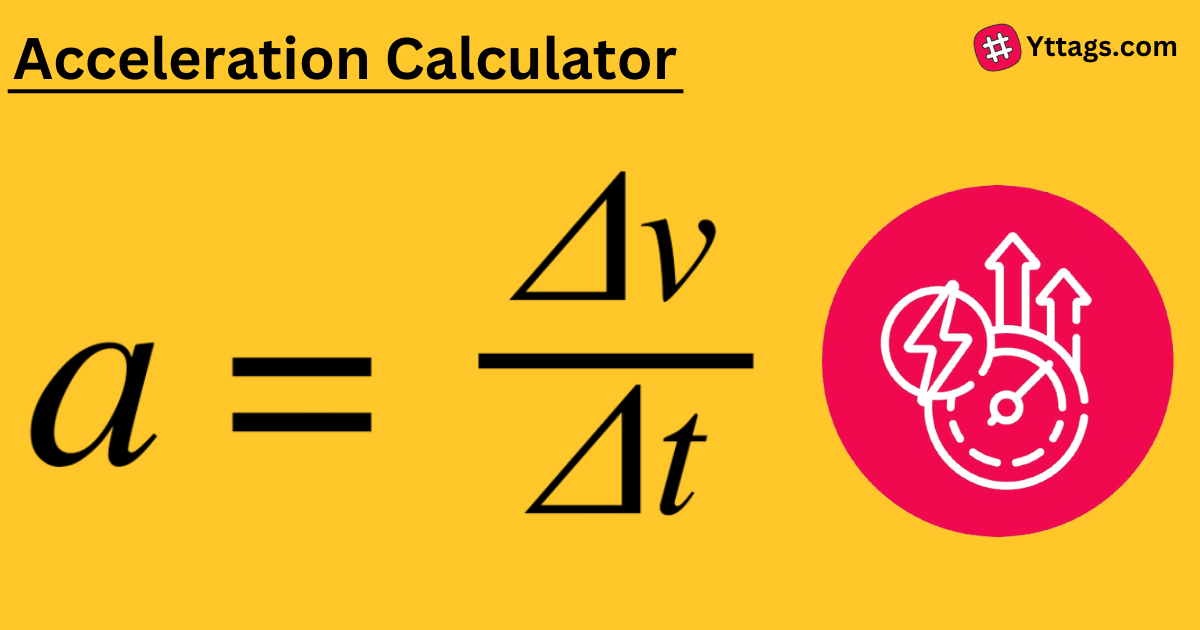Acceleration Calculator
The acceleration calculator estimates acceleration using three different approaches – velocity difference, distance traveled over time, and net force vs. mass.
Result
x
Average Rating: Tool Views: 119
How to use this Acceleration Calculator Tool?
How to use Yttags's Acceleration Calculator?
- Step 1: Select the Tool

- Step 2: Enter The Following Options And Click On Calculate Button

- Step 3: Check Your Acceleration Calculator Result

A versatile acceleration calculator with which you can calculate the acceleration given initial and final speed and acceleration time, calculate initial speed given acceleration, final speed and time, calculate the final speed from a given acceleration, starting speed and time, or the time required to reach a certain final speed given a starting speed and acceleration. ➤ Free online calculator that accepts meters per second (m/s), km per hour, miles per hour, yards and feet per second. Output is in meters per second squared and in terms of standard gravity units (g, g-units). Car acceleration calculations.
